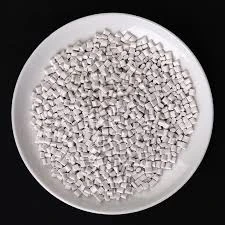Enhancing Plastic Recycling with Additives
Plastic recycling is a crucial aspect of managing the ever-growing waste crisis, but it faces multiple challenges. One of the primary hurdles is the quality and performance of recycled plastics. As the demand for high-quality, sustainable materials increases, industries are turning to additives that can significantly improve the properties of recycled plastics. This article explores the role of additives in enhancing plastic recycling.
Firstly, it’s essential to understand that not all plastics are created equal. Different types of plastics, such as PET (polyethylene terephthalate), HDPE (high-density polyethylene), and PVC (polyvinyl chloride), behave differently during the recycling process. As plastics are recycled, they can lose some of their physical characteristics, resulting in inferior or unusable materials. Additives can address this issue by improving the mechanical and thermal properties of recycled plastics, making them more suitable for various applications.
Enhancing Plastic Recycling with Additives
Moreover, processing additives can play a vital role in the recycling journey. These additives are designed to enhance the processing characteristics of recycled plastics. They can aid in reducing viscosity during extrusion, which allows for easier handling and processing of the material. By improving flow properties, processing additives facilitate the conversion of recycled plastics into new products, ultimately enhancing their usability across various manufacturing processes.
plastic recycling additives

Another promising area of research focuses on additives that can enhance the thermal stability and longevity of recycled plastics. As recycled materials undergo extensive heating during processing, they are susceptible to thermal degradation. Stabilizers can be added to counteract this effect, enabling the material to withstand higher temperatures while maintaining its structural integrity. This opens doors for the use of recycled plastics in applications that require higher durability, such as automotive and construction components.
Furthermore, fillers and reinforcements add another layer of capability to recycled plastics. For instance, natural fibers, such as hemp or bamboo, are being used as sustainable fillers that not only enhance the mechanical strength of recycled plastics but also improve their biodegradability. By incorporating such fillers, manufacturers can produce eco-friendly materials that meet stringent environmental regulations while benefiting from the enhanced physical properties of recycled substances.
Sustainability is at the forefront of the global agenda, and the use of additives in plastic recycling aligns with this movement. By improving the quality and applicability of recycled plastics, these additives reduce the reliance on virgin materials, consequently decreasing environmental footprints. Several companies are now investing in innovative additive technologies, paving the way for sustainable practices in manufacturing and beyond.
Nevertheless, it is essential to take a cautious approach when introducing additives into recycled plastics. The compatibility of these additives with existing recycling systems, along with their long-term environmental impact, must be thoroughly assessed. Regulatory scrutiny surrounding additives necessitates that manufacturers ensure safety and compliance while innovating.
In conclusion, the incorporation of additives in plastic recycling plays a pivotal role in transforming recycled plastics into high-quality, functional materials suitable for various applications. From improving mechanical properties with compatibilizers to enhancing processing capabilities with stability additives, the potential for innovation in this field is significant. As industries continue to prioritize sustainability, the development and application of effective additives in plastic recycling will be critical in shaping a more circular economy. By harnessing these technologies, we can move closer to a world where recycled plastics are not just an alternative but a preferred choice for manufacturers across the globe.

